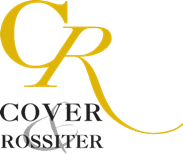The economic downturn of the past several years has put tremendous pressure on state budgets. As a state’s citizens experience a reduction in their levels of income there is a corresponding decrease in a state’s tax revenues. States are expanding efforts to increase tax compliance in order to deal with their dwindling tax revenues. Although the vast majority of taxpayers voluntarily comply with the requirements to file their tax returns, there is an ever-increasing trend of non-compliance, particularly at the state level. As a result, many States have begun to adopt initiatives to “encourage” compliance. One of Delaware’s initiatives was the passage of House Bill 257 in June of this year. This new law enables Delaware’s Director of Revenue to authorize the Division of Professional Regulation to suspend or deny a taxpayer’s professional or occupational license for the failure to pay taxes that exceed $1,000, and a judgment has been assessed. Therefore, in order to maintain your professional license you must comply with all provisions of the state tax code or place your ability to practice medicine in Delaware in jeopardy. Obviously, no physician wants to risk this type of penalty. Filing timely returns and responding promptly to any tax notices issued by the state are keys to avoiding any suspension of your license. It is also imperative that you are knowledgeable about what taxes you may be liable for. Listed below are some of the taxes that licensed physicians may be responsible for:The published article can be seen here. See the article on our website here.
The issuance of a tax notice or deficiency will not immediately result in the suspension of your license. The state cannot initiate the suspension process until a taxpayer has had sufficient opportunity to address the issue. We recommend that upon notification from the state of a tax deficiency that you (or your tax advisor) investigate whether the notification is accurate. The notice will indicate a deadline by which the state requires a response. If you determine that the deficiency is indeed accurate, submit the required tax payment by the due date indicated in the notice. If you cannot determine the accuracy of the assessment by the due date, make sure to inform the state either by phone or by mail correspondence, and request an extension of time to investigate the matter. If you encounter a situation in which you cannot pay in full the amount due with a tax notice, do not delay responding until you have the ability to pay. Be proactive, and contact the representative listed on the notice to arrange a payment plan. You will be assessed additional penalties and interest on your tax liability until you pay in full, but will preserve your ability to practice as a physician because the state will not initiate proceedings to suspend your license. If you or your practice needs assistance dealing with state tax notices or tax compliance issues please contact Marie Holliday at (302) 691-2211 or Susan Marley at (302) 691-2232.
- Personal Income Tax
- State of Delaware Payroll Withholding Tax
- Gross Receipts Tax
- State Unemployment Tax
- Corporate Income Tax (not all entities will be subject to this)
- S-Corporation Non-Resident Shareholder Estimated Tax

Cover & Rossiter is one of the area's oldest and most respected certified public accounting and advisory firms. Focused on being the best rather than the biggest, we assembled an outstanding team with a wide range of skills. It is our goal to provide our clients with innovative services designed to maximize profitability and minimize tax burden. Our advice is current… our client focus timeless.
Thursday, January 3, 2013
Tax Deficiencies Can Now Result in License Suspensions
Marie Holliday, CPA, MBA & Susan Marley, CPA of Cover & Rossiter, P.A. were recently published in the Medical Society of Delaware's Delaware Medical Journal.